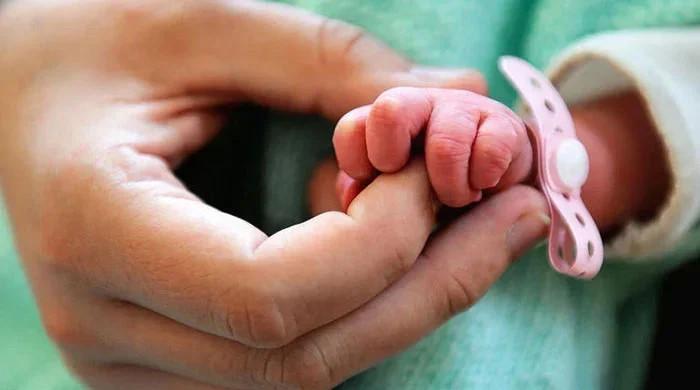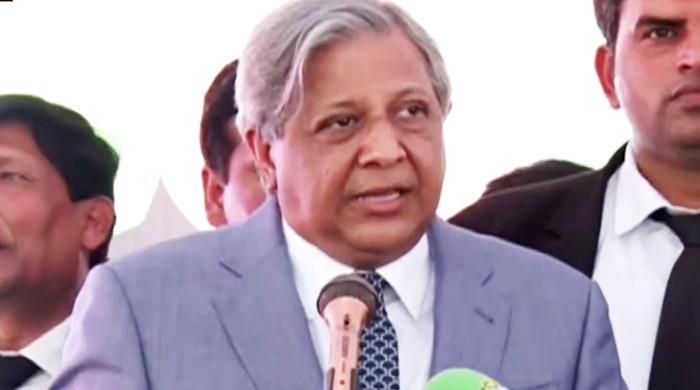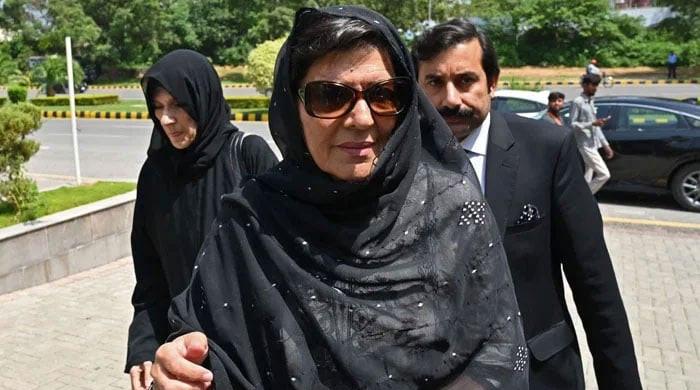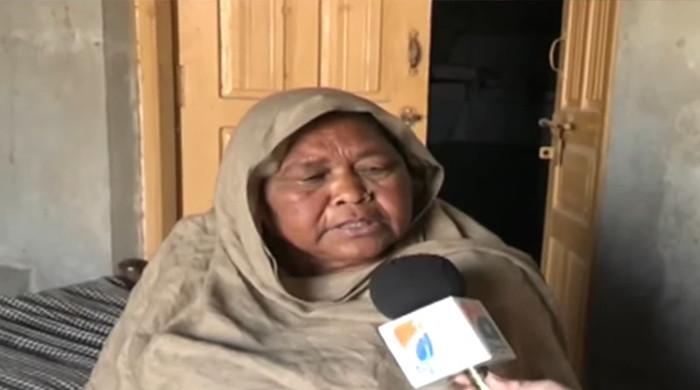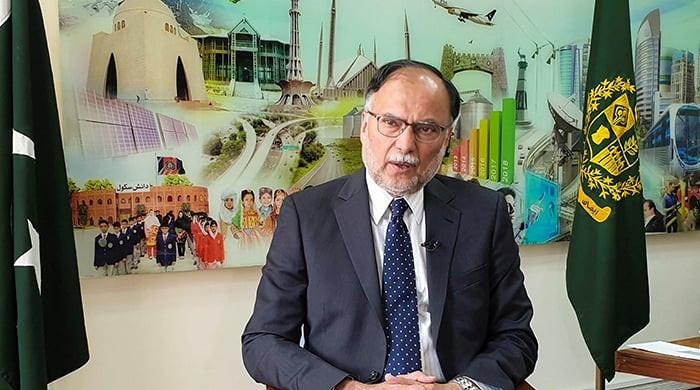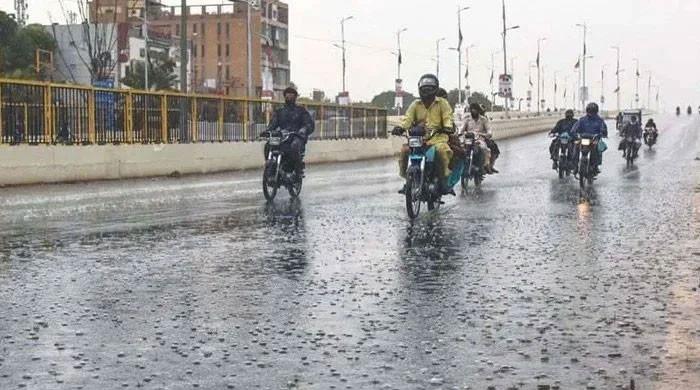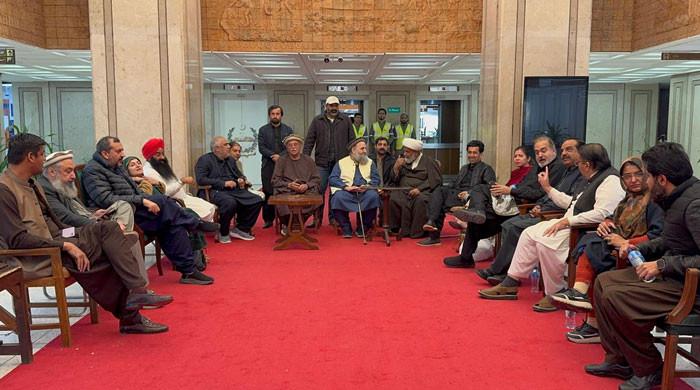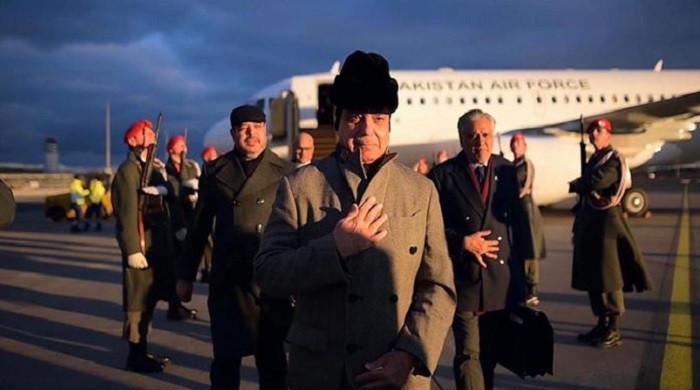Hazara community launches protests in Quetta over Machh massacre
MWM leader says PM Imran Khan should come to Quetta to meet with and reassure the bereaved families
January 03, 2021
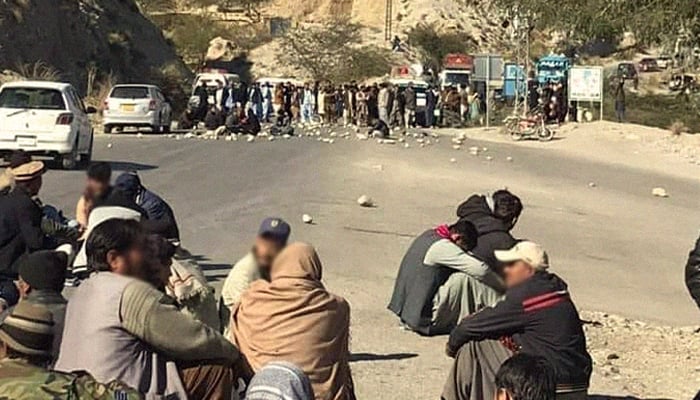
- Several roads blocked in Quetta as Hazara community, political parties stage sit-ins demanding justice
- Majlis Wahdat-e-Muslimeen demands Balochistan govt either arrest the terrorists or resign
- MWM's Syed Muhammad Agha Raza appeals to PM Imran Khan to come to Quetta, meet bereaved families
QUETTA: The Hazara community, as well as other political parties, launched protests on Sunday over the massacre of coal miners in Balochistan's Bolan district, blocking several roads in the provincial capital.
At least 11 colliers were shot dead after armed men stormed the Machh coal field on Sunday morning, took the miners to nearby mountains, and opened fire. Four others were seriously wounded, police confirmed.
Also read: 11 colliers killed as armed men attack Machh coal field in Balochistan
The Majlis Wahdat-e-Muslimeen (MWM) staged a sit-in at Quetta's Western Bypass, demanding the Balochistan government either arrest the terrorists responsible for the Machh massacre or resign.
MWM leader Syed Muhammad Agha Raza said Prime Minister Imran Khan should come to Quetta to meet with and reassure the bereaved families of the victims.
The Hazara community staged a separate protest, taking to the Western Bypass to mourn the incident and voice their grievances.
A traffic jam was reported at the thoroughfare from the Baleli checkpost to the intersection at Quetta's Airport Road due to the protest, with dozens of vehicles stranded and passengers and transporters facing difficulties in travelling.
Meeting called
On the other hand, various Hazara political parties and organisations held a meeting to discuss the Machh massacre and strategies going forward.
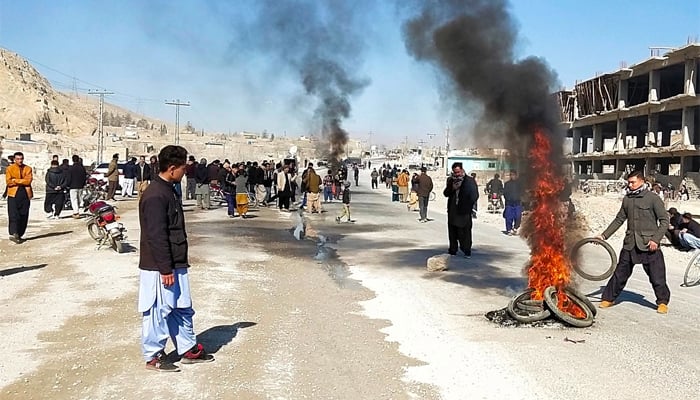
Among the participants were Balochistan Assembly lawmaker Qadir Nayel, Hazara Democratic Party (HDP) Parliamentary Leader and Adviser Abdul Khaliq Hazara, Balochistan Shia Conference (BSC) President Syed Dawood Agha, Quetta Solidarity Council (QSC) leader Tahir Khan Hazara, and MWM's Agha Raza.
Earlier in the day, the government of Balochistan ruled out any security lapses, with its spokesperson, Liaquat Shahwani, telling Geo News that the incident was an act of terrorism.
Balochistan govt says massacre 'wasn't expected'
Shahwani said the law and order situation in the area "was satisfactory", which was why "this incident wasn't expected", and that the locality where the massacre took place was quite large. The Balochistan government would increase security in the area after assessing the situation, he added.
Balochistan Chief Minister Jam Kamal took notice of the Machh massacre, expressing sorrow over the loss of life and seeking a report from the concerned authorities.
According to the deputy commissioner, the terrorists had entered the two of the rooms the colliers resided in, kidnapped them and tied their hands and feet, and shot them dead near a mountainside. The bodies of the deceased were later shifted to Hazara Town near Quetta.
'Pakistan's enemies' responsible
Prime Minister Imran Khan condemned the "cowardly inhumane act of terrorism", saying he had advised the Frontier Corps (FC) personnel "to use all resources to apprehend these killers & bring them to justice".
"The families of the victims will not be left abandoned by the govt," PM Imran Khan said on Twitter.
The premier's aide on overseas Pakistanis, Sayed Zulfiqar Bukhari, held "Pakistan's enemies" responsible for the incident, saying they were "trying to create unrest in the country".
Terrorist attacks are not uncommon in Balochistan but their frequency had reduced over the past few years.
Terrorist incidents not uncommon
At least 100 people had died and more than 170 were wounded in the January 2013 suicide bombings at Quetta's Alamdar Road. A month later, over 70 were killed as yet another bomb ripped through a crowded market in the provincial capital's Akhtarabad neighbourhood.
A few months afterwards, in June 2013, more than a dozen people died when a bomb exploded inside a bus carrying students of the Sardar Bahadur Khan Women's University, followed by a gruesome suicide attack and an exchange of gunfire at the Bolan Medical College Hospital's emergency ward where the victims were transported.
Similar incidents were reported in various cities of Balochistan, including Mastung, Noshki, Hanna Valley, Taftan, and Ziarat.




